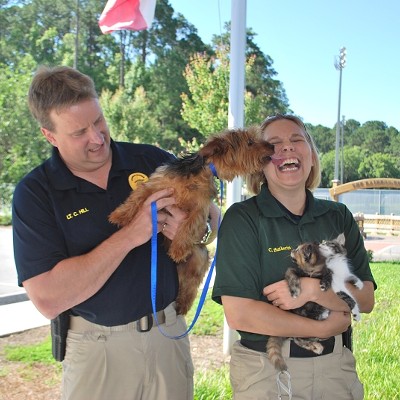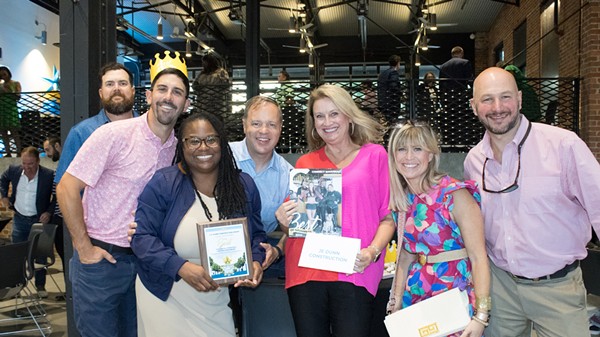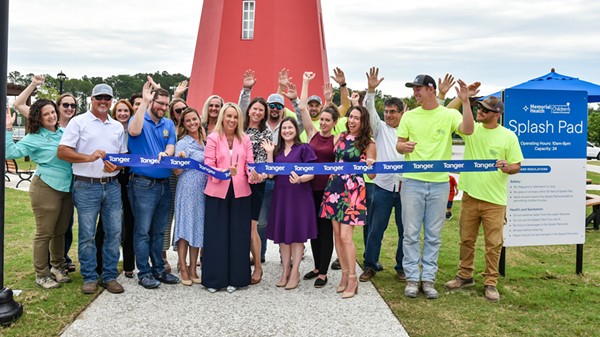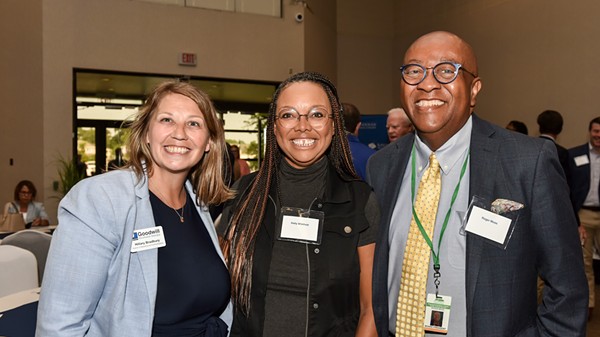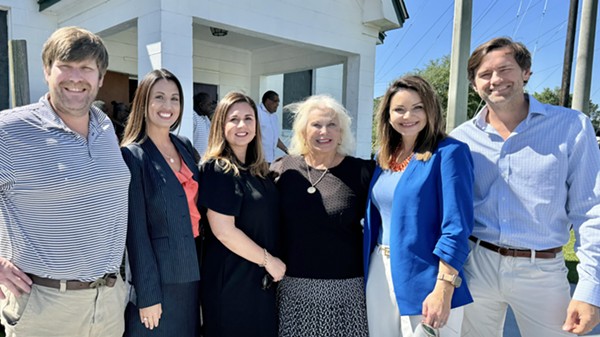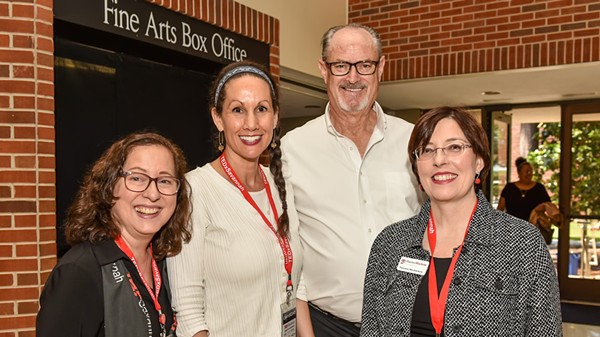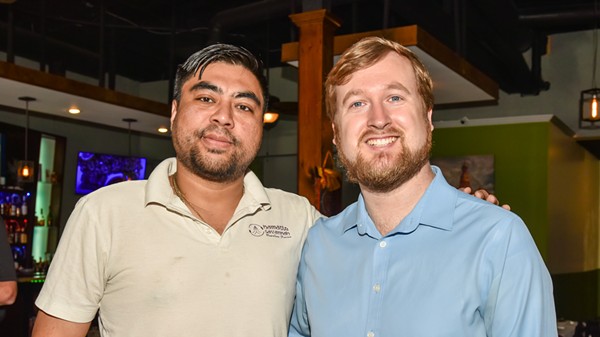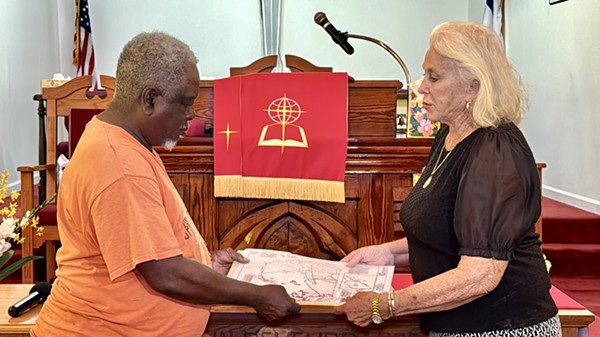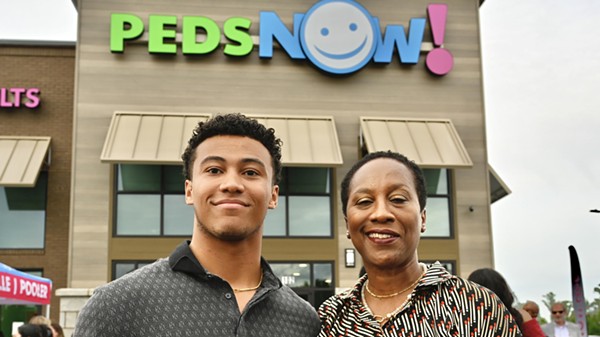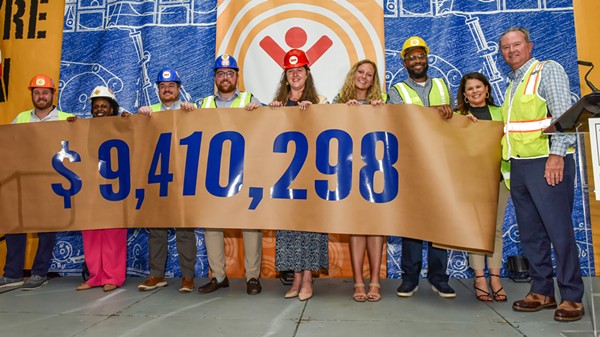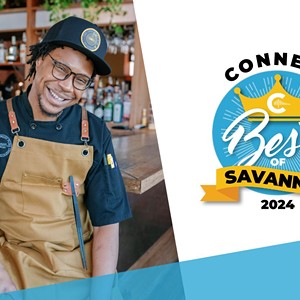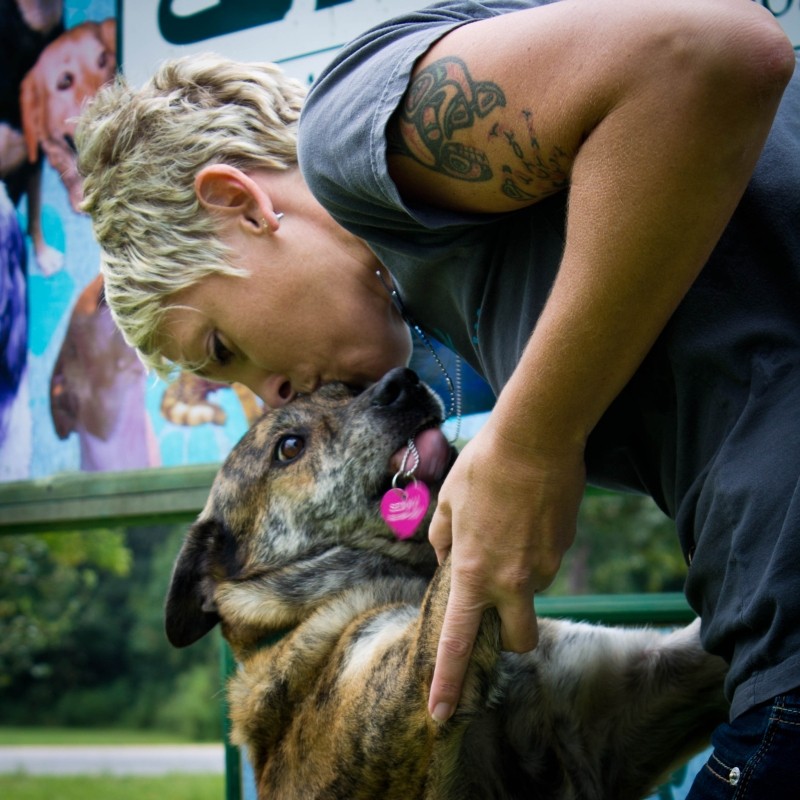
IF YOUR 2015 goals include getting in shape and being of service to your community, you're in luck: There's a new program in town that allows you to check off both of those resolutions at once—as long as you don't mind a little extra fur.
FosterFit, an innovative concept that pairs preventative healthcare with animal advocacy, is seeking committed humans 18 or older to foster a homeless dog for 10 weeks. In exchange, participants receive free supervised exercise classes, nutritional counseling and persistent motivation from their charges to take plenty of walks. Applications are due Jan. 23, and the people/pup pairs will be matched by mid-February.
The pilot program was conceived by Tybee resident Lea Lynch, a consultant and mother who runs software interface design firm with her husband, Nate. She recently made positive changes in her own lifestyle by taking regular walks with the family Shih Tzu, Charley, and realized how much her dog contributed to her success.
“I wanted to create a health care program that was approachable,” says Lynch. “And I also wanted to incorporate the scientific research that shows how people and pets exercising together is great for everybody involved.”
Lynch is also a low-residency graduate student at Buffalo, N.Y.-based Canisius College, working towards her Masters in Anthrozoology, the study of human-animal interaction. The symbiotic relationship between people and dogs plays a part in the coursework, as do animal rights and protection.
Lynch has been particularly drawn to “animal-assisted intervention” techniques used in PTSD treatment and special needs therapy, and the FosterFit project first began as her thesis. She knew that humans could benefit from the presence of a pet, but she also wanted to help animals as well. Since she and Nate first fostered Charley—a refugee from Hurricane Katrina—before deciding to adopt her, Lynch added another layer to her proposal.
FosterFit is loosely based on the success of the nationwide Walk A Hound, Lose A Pound programs, which bring participants to animal shelters for mutually-favorable physical activity. But Lynch’s idea of matching one person with a dog in need of temporary care appears to be unique.
“As far as I know, this is the first exercise program that gives people an opportunity to foster a pet in their home,” she says.
The pairs will work as team on improving their health: Humans will receive a free FitBit bracelet to measure their physical activity, and the pups’ progress will be tracked by a similar device made by Whistle Labs. Carolyn Guilford of Health Restoration Consulting of Savannah will provide cooking lessons and nutritional advice for the homo sapiens as well as an enlightening field trip to the grocery store (sans dogs.) Food and medical guidelines for the canines comes from Dr. Brian Mulvey of Savannah Veterinary Medical Center (no table food allowed!)
Group fitness for both the two-legged and four-legged will take place outdoors at the Habersham YMCA. The weekly classes will include strength training, balance and agility work, and of course, regular games of fetch. It’s a bit of an experiment, since pooches don’t normally spend time at the gym.
“It’s such a cool concept,” enthuses YMCA Wellness director Dede Roberts about FosterFit. “We’re going to learn a lot from this first go-round, and hopefully make improvements as we go.”
Roberts emphasizes that the program is appropriate for all fitness levels, even beginners, but participants shouldn’t expect traditional calisthenics.
“It’s not like we’re going to be on the ground doing ab work. I don’t think a dog will do sit-ups!” she laughs.
The FosterFit dogs themselves will be handpicked by the Humane Society of Greater Savannah for their good natures and moderate energy levels—lively enough to motivate their humans, but not out of control. They’ll come to their foster parents with everything needed for a successful 10-week stay—food, crate, collar, leash, heartworm medication and any necessary veterinary care—and they’ll receive free training throughout the program.
“We’ll offer weekly classes for general behavior, basic commands like ‘sit’,’ ‘stay,’ and ‘come,’ plus crate and house training,” says HSGS Director of Operations Guinn Friedman.
“When they come back to us after ten weeks, that animal is going to know that much more. Even better, their person might decide to adopt them.”
FosterFit also presents a shift in the way the Human Society handles temporary housing, and the program may even help dogs who aren’t participating.
“Most of the time, we use foster families to take in dogs that are sick,” explains Friedman.
“The FosterFit dogs will have to be healthy, plus we’ll know exactly how long they’ll be in there. That’s going to open up a lot of space in our shelter for other animals.”
Lynch feels that the fostering aspect of the program could be the deciding factor for folks who wouldn’t otherwise sign up for an exercise program.
“I was talking about the general idea of people and pets, and many have said that they’d do it for the dog,” she says.
“For some people, what makes this compelling is that they have the opportunity to make the difference in a dog’s life.”
Canine companionship is important to Lynch on a personal level: In addition to fostering Charley, she also adopted a mop-topped mutt named Olive in 2001 from the Humane Society in Indianapolis, IN, her hometown. Olive passed away in 2012 at the age of 15, and Lynch continues to feel the impact the animal made on her.
“Even though she’s gone, she will forever be part of our family,” she remembers. “She was extremely special.”
Studies show that not only do pets increase physical exercise but caring for them can alleviate symptoms of depression and anxiety. FosterFit is open to anyone 18 years or older, and seniors and veterans are strongly encouraged to apply.
The commitment only lasts 10 weeks, but in some cases Lynch thinks the partnerships could last much longer.
“We expect that people are going to develop some very strong bonds by the end of this program,” says Lynch.


